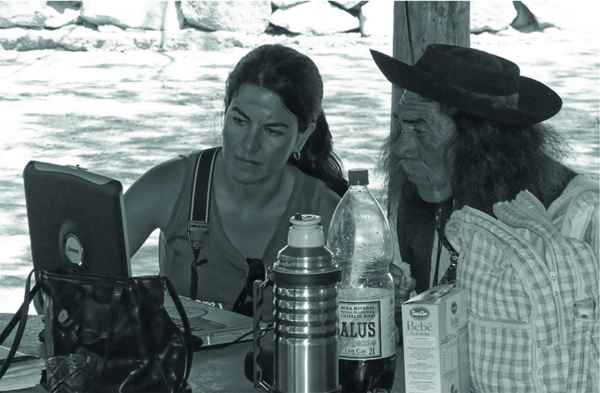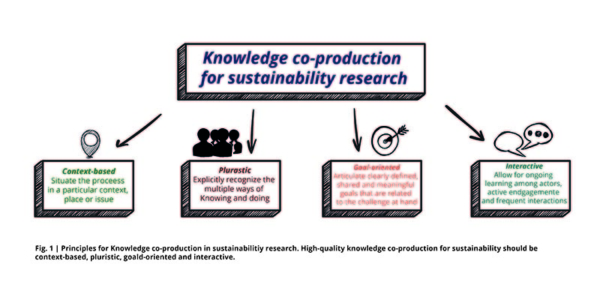Co-production
Refers to the cooperation between actors (academic and non-academic) in the creation of knowledge. It is an iterative and collaborative process that includes various knowledge systems with the purpose of solving a problem, defining a strategy or any other type of decision-making process, generally related to a particular socio-economic and cultural context.


Photo by Hugo Inda
Human domination over the biosphere has increased well-being and economic development. On the other hand, we have the effects on the ecosystems and their related services, without which the sustainability of life on the planet would be threatened. The complexity of the socio-ecological systems and the multiplicity of simultaneous disturbances to which they have exposed results in uncertainty about the future.
It is in this context that co-production rejects the paradigm that science is solely responsible for identifying problems, finding solutions, and finally providing solutions to society. By contrast, it proposes collaborative work based on the explicit recognition of the soundness of including different ways of doing and knowing. This implies building trust among the actors, so that co-production not only produces knowledge but also capacity, networks, and social capital that will contribute to sustainability.
The concept of co-production also challenges the paradigm that the government is solely responsible for the management and care of goods and services. If the beneficiaries of the services participate in management, they can contribute to the development of strategies and actions, regardless of whether the process started at the State level (top-down) or from society (bottom-up).
The notion of knowledge co-production extends to research on sustainability and is a response to the complexity and social relevance of the emerging challenges of the environment, economic development, and social conflict. Co-production assumes that the relationship between science, policies, and practice are complex, non-linear, and span multiple trajectories.
There are several approaches that include participatory research, mode 2 science, interactive research, civic science, post-normal science, or transdisciplinary knowledge production. They all have in common that they are contextualized, focused on problem-solving, and require the participation of multiple disciplines and knowledge. Unlike the production of knowledge only from science, its focus is not only on the results but also includes the quality of the relationships between the actors participating in the creative process.
The challenges of sustainability in a rapidly changing world require new structures that facilitate and foster dialogue and cooperation between science, decision-making processes, and the economy. For this, the co-production of quality knowledge to ensure sustainability should have the following characteristics:

Adapted form Norström et al 2020
Key References →
Norström, A. V., Cvitanovic, C., Löf, M.F., West S., Wyborn, C., Balvanera, P. et al. (2020). Principles for knowledge co-production in sustainability research. En: Nature Sustainability 3(1).
Nicholas, G., Foote, J., Kainz, K., Midgley, G., Prager, K., Zurbriggen, C. (2019). Towards a heart and soul for co-creative research and practice: a systemic approach. Evidence & Policy, 15(3), 353-370.
Jacobi, P. R., Ferraz de Toledo, R., Giatti, L. L. (2019). Ciência Pós-normal. Ampliando o dialógo com a sociedade diante das crises ambientais contemporâneas. Faculdade De Saúde PúblIca, Universidade de Sao Pablo.
Additional suggested readings
Berkes, F., Colding, J., Folke, C. (2003). Navigating Social-Ecological Systems, Building Resilience for Complexity and Change. Cambridge: Cambridge University Press.
Walker, B.H., y Salt, D. (2006). Resilience Thinking: Sustaining Ecosystems and People in a Changing World. Washington, D.C.: Island Press.
